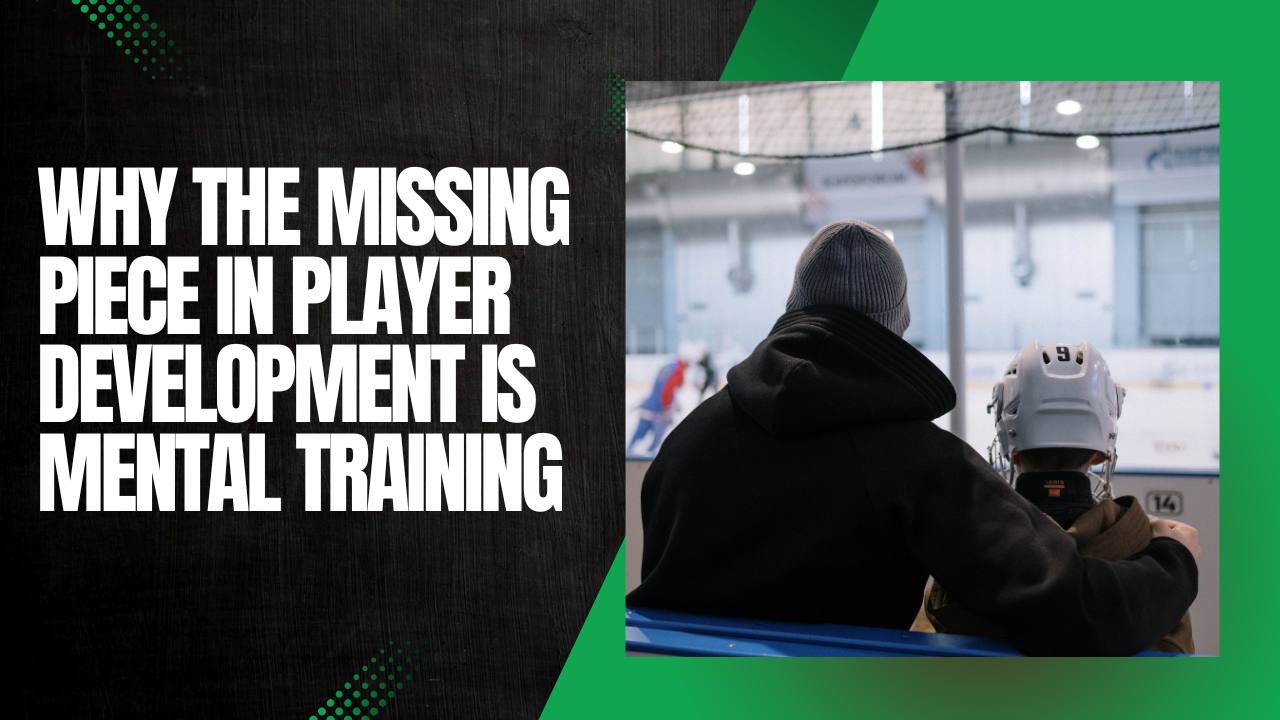
Why the Missing Piece in Player Development is Mental Training
Aug 03, 2025When we talk about athletic performance, most of the conversation revolves around the physical: how fast an athlete can sprint, how hard they can shoot, or how strong they are on the puck. But there’s a critical component that often gets overlooked—one that can elevate good players into great ones, and help great players stay consistent at the top of their game.
That component is mental training.
Mental training isn’t just for elite professionals or athletes in a slump. It’s a tool every player can—and should—develop alongside their physical skills. Here's why:
1. It Teaches Athletes How to Set and Stick to Goals
Goal-setting is more than writing down what you want. It’s about knowing how to break those goals into daily actions, staying motivated when no one’s watching, and adjusting when things don’t go as planned. Mental training helps athletes build this framework—turning long-term dreams into achievable steps.
2. It Builds Confidence That Lasts
Confidence isn’t something you “just have”—it’s something you build. When athletes learn how to manage their mindset, recognize negative self-talk, and refocus in the moment, they gain an inner belief that holds strong even when the scoreboard doesn’t go their way.
3. It Helps Athletes Bounce Back From Mistakes
No one plays a perfect game. But the athletes who recover quickly from errors are the ones who stand out. Mental training teaches how to reset mid-game, reframe mistakes as feedback, and stay composed—rather than letting one error spiral into many.
4. It Improves Focus and Calm Under Pressure
Breathing techniques, mindfulness, and awareness practices are game-changers—literally. They help players stay locked in during high-stakes moments and avoid emotional decision-making that can cost the game.
5. It Boosts the Value of Every Practice
When players show up mentally prepared, they don’t just go through the motions—they get more out of every rep. Mental training teaches athletes how to self-reflect after practice, process feedback constructively, and stay consistent when no one’s watching.
6. It Strengthens Team Dynamics
We often forget that mental resilience and communication go hand-in-hand. When an athlete is more emotionally regulated, they’re more likely to speak up, listen better, and contribute to a healthier team culture. Tensions are addressed more calmly, and respect becomes the foundation of the locker room.
7. It Helps Athletes Manage School + Sports
Athletes today are under a tremendous amount of pressure—both on the field and in the classroom. Learning how to manage stress, organize priorities, and regulate their emotions can prevent burnout and keep them moving forward, on and off the ice.
Bottom Line?
Mental training is not a “bonus” tool for athletes who are struggling. It’s a foundational part of peak performance. And the earlier your athlete starts building those skills, the better equipped they’ll be—this season, next season, and in life beyond sports.
